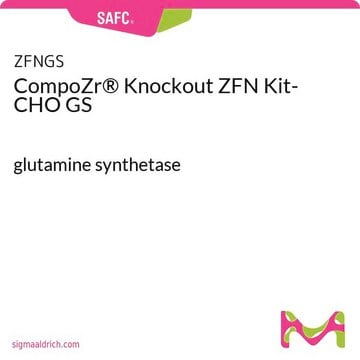SFRVN
Sf-RVN™ Insect Cell Line
Synonym(s):
Sf9 rhabdovirus-negative (Sf-RVN™) Insect Cell Line
About This Item
Recommended Products
description
Sf9 rhabdovirus-negative (Sf-RVN™) Insect Cell Line
solubility
DMSO: 10%
shipped in
liquid nitrogen
storage temp.
−196°C
Related Categories
General description
Cell Line Origin
Sf-RVN™ is an insect cell line originally derived from ovarian tissue of Spodoptera frugiperda (Sf) pupae. The parental line, IPLB-SF-21 (renamed IPLB-SF-21 AE after adaptation into TC-100 medium), was established by J. Vaughn at the Insect Pathology Beltsville in Maryland, USA in the late 1960s. A subclone, designated Sf9, was established in 1983 by G. Smith and C. Cherry. Sf-RVN™ was isolated from Sf9 by GlycoBac, LLC.
Physical form
Other Notes
Legal Information
related product
Storage Class Code
12 - Non Combustible Liquids
WGK
WGK 1
Flash Point(F)
Not applicable
Flash Point(C)
Not applicable
Choose from one of the most recent versions:
Certificates of Analysis (COA)
Don't see the Right Version?
If you require a particular version, you can look up a specific certificate by the Lot or Batch number.
Already Own This Product?
Find documentation for the products that you have recently purchased in the Document Library.
Articles
See how the Sf9 rhabdovirus-free cell line was developed and how we’ve developed a companion chemically-defined insect cell media for protein and viral expression.
To address scalability challenges of AAV manufacturing, we developed an HEK293 suspension cell line that can be used across many serotypes. Get the data in this article.
The current status and future manufacturing of AAV-based gene therapies is discussed in this podcast transcript, including how to streamline large-scale manufacturing.
Minimize the complexities of cell and gene therapy production. Switch to upstream viral vector platforms to enhance scalability and simplify GMP manufacturing.
Related Content
A transfection-based solution to viral vector production using a suspension cell line, chemically defined medium, and a process with proven performance at scale.
Our team of scientists has experience in all areas of research including Life Science, Material Science, Chemical Synthesis, Chromatography, Analytical and many others.
Contact Technical Service






